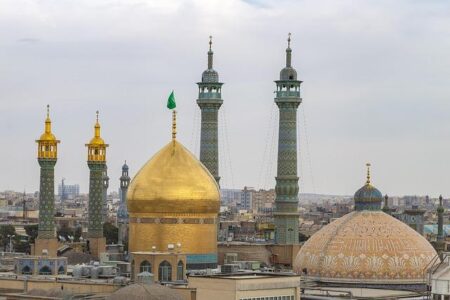Japan has lodged a formal protest against recent Chinese construction activities in the East China Sea, escalating tensions in the region. The move comes amid ongoing territorial disputes between the two nations over strategic maritime areas. The Japan Times reports that Tokyo views the construction as a violation of its sovereignty and a challenge to regional stability, prompting diplomatic démarches aimed at de-escalation. This latest development underscores the fragile security environment in East Asia and the complex dynamics shaping Sino-Japanese relations.
Japan Condemns Expansion of Chinese Facilities in Contested East China Sea
Tokyo has officially expressed strong opposition against China’s recent activities involving the development of new structures on disputed islets in the East China Sea. The Japanese government argues that these unauthorized expansions threaten regional security and violate international maritime laws. According to officials, the construction includes military-grade facilities and expanded docking areas, potentially altering the balance of control in the contested zone, which has historically been a point of tension between the two nations.
In response, Japan is intensifying diplomatic efforts and increasing surveillance in the area. Tokyo has also called on international bodies to recognize and address these unilateral actions, emphasizing the need for peaceful dispute resolution. The key concerns highlighted include:
- Risk of armed confrontation: Enhanced military presence raises the stakes for potential clashes.
- Environmental damage: Construction threatens fragile marine ecosystems.
- Impact on regional trade: Disruptions in shipping lanes could affect global commerce.
| Facility Type | Purpose | Strategic Impact |
|---|---|---|
| Docking Pier | Support for naval vessels | Enhanced rapid deployment capability |
| Radar Station | Surveillance and monitoring | Expanded early-warning coverage |
| Communication Hub | Command and control | Improved coordination of forces |
Strategic Implications of Beijing’s Construction Projects for Regional Security
Beijing’s recent construction initiatives in the contested areas of the East China Sea are raising alarms among neighboring countries, intensifying concerns over a shifting balance of power in the Indo-Pacific region. These projects, which reportedly include the establishment of new military outposts and enhanced maritime infrastructure, signal a deliberate effort to consolidate territorial claims. Japan, alongside its regional partners, views these developments as a challenge to the existing security framework and a potential catalyst for escalating tensions.
Analysts warn that the strategic implications extend beyond mere territorial disputes, highlighting several critical concerns:
- Enhanced Surveillance Capabilities: The installations could serve as advanced monitoring hubs to track naval and aerial movements across crucial sea lanes.
- Force Projection: Expanded military infrastructure may enable rapid deployment and increased presence of Chinese forces in disputed waters.
- Disruption of Freedom of Navigation: The fortified presence risks restricting access for commercial and military vessels of other nations.
| Factor | Potential Impact | Regional Reaction |
|---|---|---|
| Military Base Expansion | Increased operational reach | Heightened alertness & joint drills |
| Artificial Island Construction | New strategic vantage points | Diplomatic protests & legal challenges |
| Naval Infrastructure | Improved logistical support | Augmented surveillance & patrols |
Calls for International Mediation and Enhanced Diplomatic Engagement
With tensions escalating sharply following China’s new construction activities in the East China Sea, calls have intensified from international observers and regional governments for impartial mediation efforts. Experts emphasize that without a neutral third party facilitating dialogue, the risk of miscalculations and conflict could increase dramatically. The complexity of the dispute necessitates enhanced diplomatic engagement not only between Tokyo and Beijing but also involving key stakeholders such as ASEAN nations and major powers like the United States.
In response to this urgency, several proposed frameworks have been suggested by policy analysts, urging:
- Establishment of an international fact-finding commission to verify construction activities and assess environmental impact.
- Reinvigoration of multilateral security dialogues that can address maritime sovereignty without prejudice.
- Implementation of confidence-building measures such as joint patrols or communication hotlines to reduce accidental confrontations.
| Mediation Proposal | Key Actors | Expected Outcome |
|---|---|---|
| International Fact-Finding | UN, ASEAN | Transparency and Verification |
| Multilateral Security Dialogue | Japan, China, US, ASEAN | Conflict De-escalation |
| Confidence-Building Measures | Japan, China | Improved Communication |
Wrapping Up
As tensions persist in the East China Sea, Japan’s protest against the new Chinese construction underscores the fragile security dynamics in the region. Both nations remain steadfast in their territorial claims, with international observers urging dialogue to prevent escalation. The situation continues to evolve, highlighting the delicate balance of power in East Asia.




